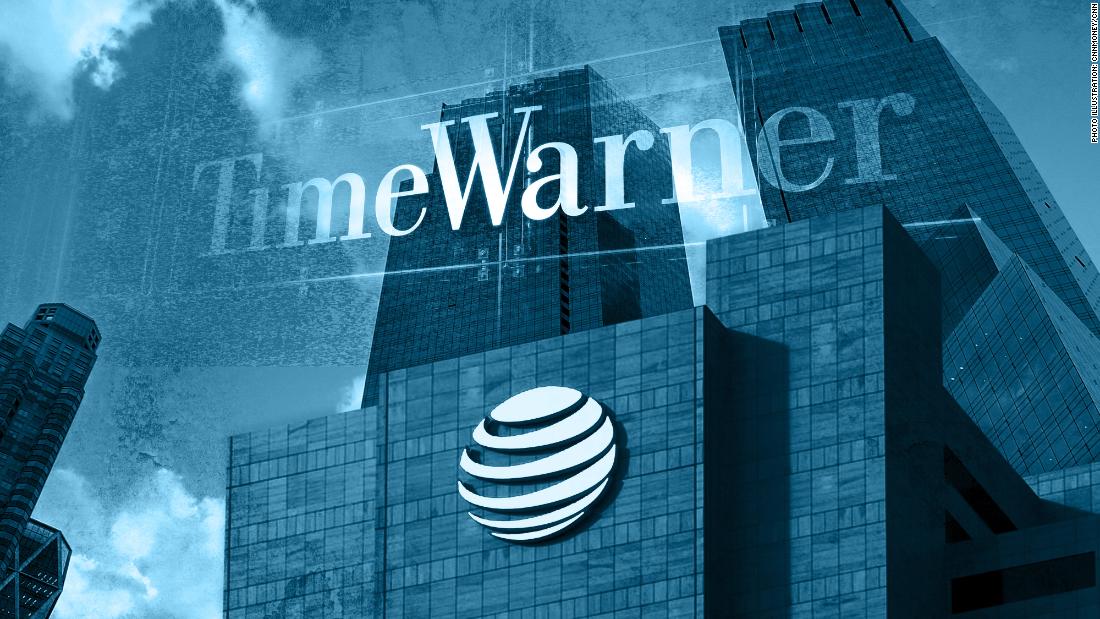
Just a reminder: This is a Republican administration.
When the Justice Department sued to stop AT&T's purchase of Time Warner, which has since been renamed WarnerMedia, it was taking an approach that liberals and progressive figures like Sens. Bernie Sanders and Elizabeth Warren had called for. They argued that a huge phone, internet and TV provider buying a mega content creator — home of properties like Warner Bros, HBO, CNN and TNT — would hurt consumers.
"This proposed merger is just the latest effort to shrink our media landscape, stifle competition and diversity of content, and provide consumers with less while charging them more," Sanders wrote in a letter addressed to the Justice Department days after the deal was announced in 2016.
The judge who heard the case, Judge Richard Leon, was appointed to the bench by President George W. Bush. In a blistering June decision, Leon ruled that the Justice Department had failed to meet its burden to prove that the merger would violate antitrust law by raising prices and harming competition. He said some of the Justice Department's evidence was "gossamer thin," and that their top expert witness' economic model lacked "reliability and factual credibility," and he noted that the government's own witnesses at some points contradicted their own case.
The Justice Department's appeal of Leon's ruling will be heard by a panel of three judges from the D.C. Circuit Court of Appeals. According to the Circuit Court's handbook, around thirty days before oral arguments a computer system randomly chooses the panel from the pool of the circuit's available judges. The system takes into account schedules, possible recusals and sometimes, according to a former clerk to a judge on the circuit, factors like if two judges "don't get along and refuse to sit together."
With the appeal, the Justice Department doesn't just get to make its case in front of more judges, it also gets a chance to be heard by judges whose views could make them more open to the government's case.
Generally, the "liberal" view of antitrust law calls for more intervention in merger cases. The "conservative" view of antitrust law calls for a more hands-off approach, with the idea the market will work itself out.
"Although views on antitrust enforcement don't necessarily fall neatly within one or another political viewpoint, conventionally, liberal judges are thought to be more pro-enforcement and conservative ones are thought to prefer to allow the market to correct issues, rather than government, wherever possible," Jonathan Pitt, co-chair of Williams & Connolly LLP's antitrust practice group, told CNN Business.
The circuit is currently down one judge, Brett Kavanaugh, who has recused himself from hearing cases while his nomination to the Supreme Court is pending. That gives the system its choice of 16 judges: 8 appointed by Republican presidents and 8 appointed by Democratic presidents.
Assuming all the judges are available and can sit with one another, there is a 40% chance that two of the three judges selected will be ones appointed by Democrats — and a 10% chance that all three will be. And assuming that a judge appointed by a Democrat would lean toward a liberal interpretation of antitrust law, that means there's a 50% chance of the DOJ getting a panel predisposed to sympathy for its case.
"If you were DOJ lawyers you'd probably prefer a Judge (Merrick) Garland or Judge (David) Tatel," the former clerk said, referring to two judges appointed to the circuit by President Bill Clinton.
"It's certainly not good for the DOJ in this appeal if the judges on the panel bring to this issue skepticism about the wisdom of government intervention in business affairs," said Jeffrey Blumenfeld, a former senior Justice Department antitrust attorney who is now a partner at the law firm Lowenstein Sandler.
Of course, there are no guarantees that a judge will rule one way or another based on their political background.
"It oversimplifies matters to say that liberal judges should want to undo the merger whereas conservative ones should want to permit it," Pitt said. "On the other hand, to the extent anyone suggests that a conservative panel would be more likely to rule in DOJ's favor because the administration that brought the case is a conservative or Republican one, I would certainly disagree with that. I have to believe that to the judges on the D.C. Circuit, the critical antitrust principles at issue here, and conventional judicial views about the clearly erroneous standard, would govern the decision—not politics."
No comments:
Post a Comment